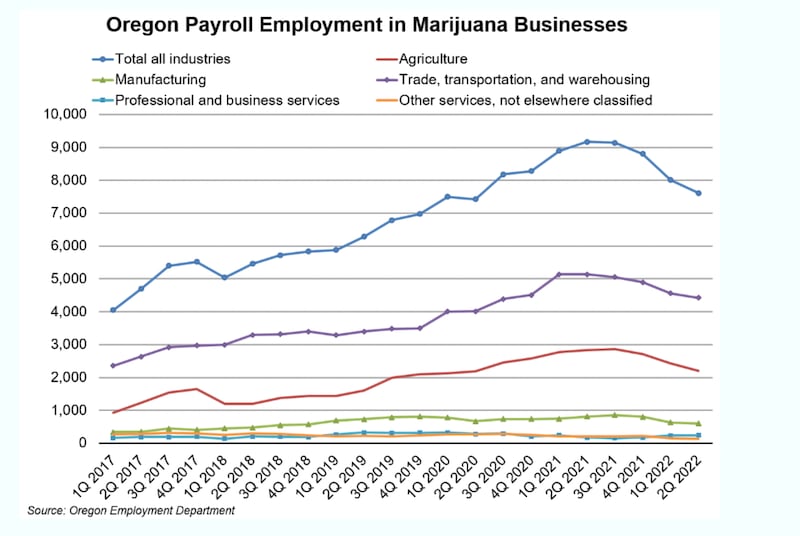Oregon voters will get to answer a pretty narrow question in November: Should workers in Oregon’s struggling cannabis industry be allowed to unionize?
The Legislature considered but did not pass a bill on the issue last year. When the bill died, its leading advocate, the labor union United Food & Commercial Workers, launched a recall campaign against state Rep. Paul Holvey (D-Eugene), the chair of the House Business and Labor Committee, where the bill died. Holvey, a longtime member of the United Brotherhood of Carpenters and the longest-serving Democrat in the House, beat the recall attempt by a 90% to 10% vote—and subsequently announced he would retire.
Holvey let House Bill 3183 die, he said, because the Legislative Counsel’s Office said it probably violated federal labor laws.
UFCW disagreed with that interpretation and crafted a ballot initiative that would accomplish its goal. It spent $2.24 million on a signature gathering campaign, records show, and on Aug. 1, the Secretary of State’s Office certified the signatures the union submitted. It will appear on the ballot as Measure 119 in November.
The union says Oregon cannabis workers currently have fewer protections than their peers in other states.
“Workers across every industry should have the freedom to unionize if they so choose,” UFCW Local 555 president Dan Clay said in a statement. “This ballot measure closes an age-old loophole that deprives that right to thousands of Oregon cannabis workers. Shady cannabis tycoons have taken advantage of an outdated law to strip workers’ rights that are guaranteed to nearly every other American.”
As WW has reported, Oregon’s cannabis industry got off to a strong start after voters legalized recreational use in 2014, but in recent years it has suffered from oversupply. That oversupply has led to lower prices and widespread financial woes, most notably at companies that expanded aggressively, such as La Mota and Chalice. La Mota, in turn, sought help from powerful friends, including former Secretary of State Shemia Fagan, whose moonlighting with the company ended her political career.
In a review of the industry in late 2022, the Oregon Employment Department found 7,671 people worked in the cannabis field. That was down a bit from peak employment, as the high hopes of early investors met with reality.


